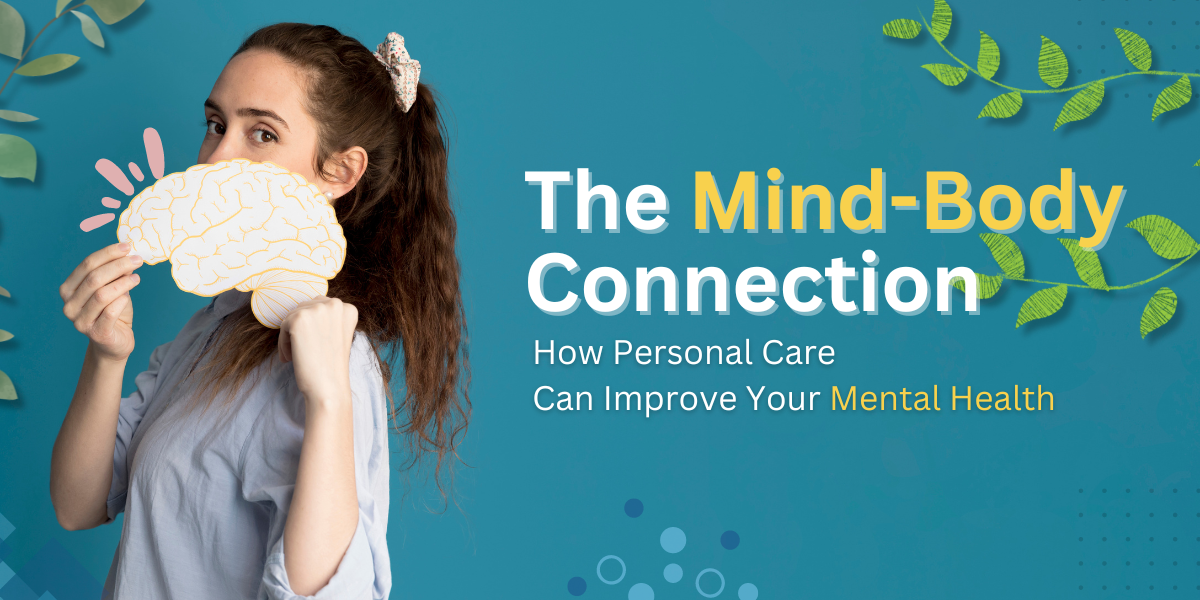Introduction:
In our fast-paced modern lives, it’s easy to overlook the crucial link between personal care and mental health. However, taking care of ourselves goes beyond physical well-being—it also encompasses our mental and emotional well-being. In this article, we explore the powerful connection between personal care and mental health, backed by relevant statistics and diverse perspectives. Discover how simple self-care practices can have a profound impact on your overall well-being.
Understanding the Mind-Body Connection
The mind-body connection highlights the interdependence of our mental and physical health. Research shows that our mental well-being significantly influences our physical health and vice versa. Neglecting self-care can lead to increased stress, anxiety, and even physical ailments. Conversely, adopting self care practices can improve mental well-being outcomes and enhance overall quality of life.
The Benefits of Personal Care for Mental Health
Stress Reduction: Engaging in self care activities such as exercise, meditation, or hobbies can help reduce stress levels. According to the American Psychological Association (APA), regular physical activity is a powerful stress reliever and can boost mood.
Boosted Self-Esteem: Practicing self care, such as grooming, dressing well, or engaging in activities that make you feel good, can enhance self-esteem and self-confidence. This, in turn, positively affects mental state and overall well-being.
Enhanced Emotional Well-being: Engaging in activities that bring joy, relaxation, or fulfillment can enhance emotional well-being. Whether it’s spending time with loved ones, pursuing hobbies, or practicing mindfulness, these activities can improve mental well-being and create a sense of fulfillment.
Diverse Perspectives
Cultural Perspectives: Different cultures have unique approaches to personal care and mental health. For example, practices like yoga, meditation, or traditional healing methods are valued in many Eastern cultures for their mental and physical health benefits.
Gender Perspectives: Men and women may have different care needs and preferences. Encouraging open conversations and understanding diverse perspectives can foster better mental well-being outcomes for all.
Taking Action: Simple Personal Care Practices
Physical Exercise: Engage in regular physical activity that suits your preferences and abilities. This can be as simple as walking, dancing, or practicing yoga. Perform 30 minutes of exercise on daily basis.
Meditation: Set time for meditation or mental excercises. This can help reduce stress, improve focus, and promote mental well-being.
Social Connections: Nurture relationships and social connections. Spend time with loved ones, engage in activities with friends, or join supportive communities.
Restful Sleep: Prioritize quality sleep by establishing a consistent sleep routine, creating a conducive sleep environment, and practicing relaxation techniques before bed.
Conclusion:
The mind-body connection emphasizes the importance of self care in maintaining optimal mental health. By incorporating self-care practices into our daily routines, we can reduce stress, boost self-esteem, and enhance emotional well-being. Let’s prioritize our mental well-being and embrace the power of personal care. Remember, taking care of ourselves is not selfish—it’s essential for a fulfilling and balanced life.





